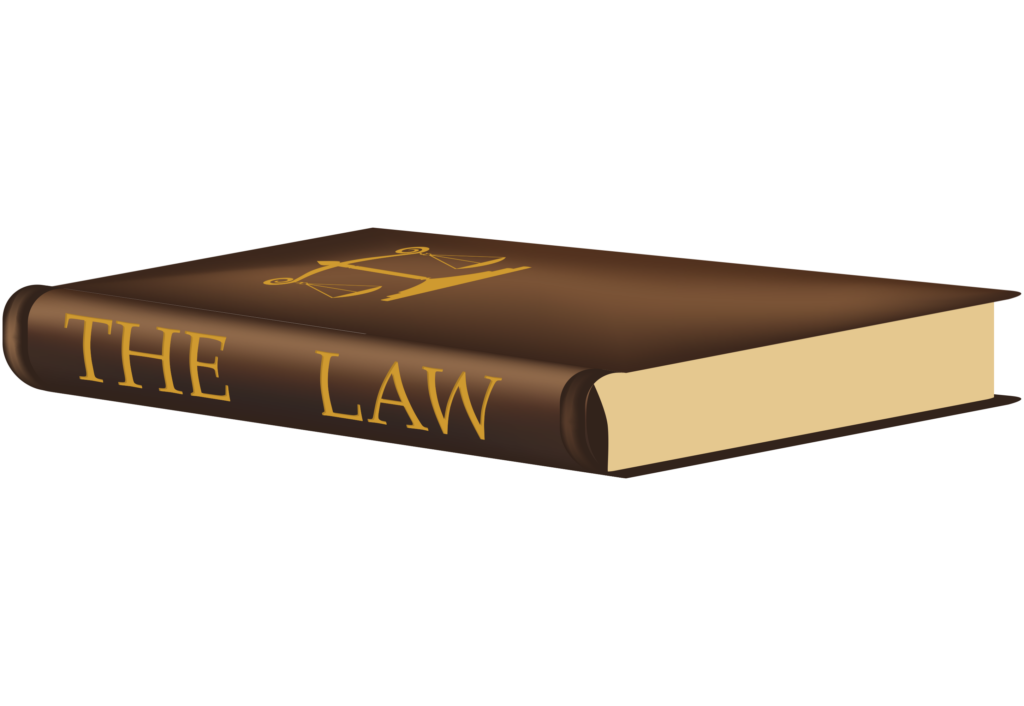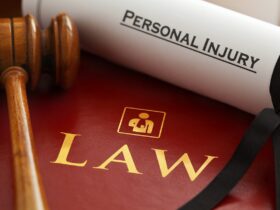Personal injury law is a branch of civil law that provides legal remedies to individuals who have suffered physical, emotional, or psychological harm due to the negligence, intentional actions, or strict liability of another party. This multifaceted area of law encompasses a wide range of situations, from car accidents to medical malpractice, and aims to ensure that those who have suffered injuries are fairly compensated for their losses.
In this article, we will explore the key aspects of personal injury law, including the types of legal claims that can arise, the parties who can be sued, the burden of proof in personal injury cases, the potential damages available, methods of resolution, the role of legal representation, and some frequently asked questions.

Types of Legal Claims Under Personal Injury Law
Personal injury law covers a broad spectrum of legal claims, each arising from different circumstances and scenarios. Some common types of legal claims under personal injury law include:
- Motor Vehicle Accidents: These include car, truck, motorcycle, and pedestrian accidents caused by negligence, reckless driving, or driving under the influence of alcohol or drugs.
- Premises Liability: Cases where injuries occur on someone else’s property due to unsafe conditions, such as slip and fall accidents or inadequate security.
- Medical Malpractice: Injuries caused by healthcare professionals’ negligence, including misdiagnosis, surgical errors, and medication mistakes.
- Product Liability: Injuries caused by defective or dangerous products, including design flaws, manufacturing defects, and inadequate warnings.
- Workplace Accidents: Injuries that occur while performing job-related tasks due to unsafe working conditions or employer negligence.
- Intentional Torts: Injuries resulting from intentional actions, such as assault, battery, defamation, and false imprisonment.
Parties Liable Under Personal Injury Law
In personal injury cases, individuals or entities that can be held liable include:
- Individuals: This includes individuals who negligently or intentionally cause harm to another person, such as in car accidents or assaults.
- Companies and Corporations: Businesses can be held liable for injuries caused by their products, premises, or employees’ actions.
- Government Entities: In cases involving injuries caused by government employees or due to unsafe government-owned property, government entities can be held accountable.
- Healthcare Professionals: Medical professionals and healthcare institutions can be sued for medical malpractice if their negligence results in patient harm.
Burden of Proof in Personal Injury Cases
To succeed in a personal injury case, the plaintiff (injured party) must prove certain elements, generally including:
- Duty of Care: The defendant owed a legal duty of care to the plaintiff. For instance, drivers have a duty to operate vehicles safely.
- Breach of Duty: The defendant breached their duty of care by acting negligently, recklessly, or intentionally.
- Causation: The defendant’s breach of duty directly caused the plaintiff’s injuries.
- Damages: The plaintiff suffered actual damages, which can be physical, emotional, or financial in nature.
Potential Damages in Personal Injury Claims
In a successful personal injury claim, the injured party may be entitled to various types of damages, including:
- Compensatory Damages: These cover actual losses such as medical expenses, lost wages, property damage, and pain and suffering.
- Punitive Damages: In cases of extreme negligence or intentional harm, punitive damages may be awarded to punish the defendant and deter similar behavior in the future.
- Loss of Consortium: Damages awarded to compensate for the loss of companionship, support, and intimacy due to the injury.
Resolution of Personal Injury Claims
Personal injury claims can be resolved through various methods, including:
- Settlement: Parties negotiate a settlement without going to court, often through mediation or direct negotiations with the defendant’s insurance company.
- Litigation: If a settlement cannot be reached, the case proceeds to court, where a judge or jury determines the outcome.
- Alternative Dispute Resolution (ADR): Methods like arbitration or mediation can provide quicker and less formal alternatives to traditional litigation.
The Role of Legal Representation
While it is possible to pursue a personal injury claim without legal representation, having a lawyer can significantly benefit the plaintiff. An experienced personal injury attorney can:
- Provide Expertise: Attorneys understand the complexities of personal injury law and can navigate the legal process effectively.
- Evaluate Claims: Lawyers can assess the strength of a case, estimate potential damages, and advise on the best course of action.
- Negotiate: Attorneys can negotiate with insurance companies and opposing parties to secure a fair settlement.
- Litigate: In court, lawyers can present evidence, cross-examine witnesses, and argue on behalf of their clients.
Frequently Asked Questions (FAQs)
1. Is there a time limit to file a personal injury claim?
Yes, there is a statute of limitations, which varies by jurisdiction and type of claim. Failing to file within this time frame may result in the loss of the right to seek compensation.
2. What if I’m partially at fault for the accident?
Many jurisdictions follow comparative negligence laws, where your compensation may be reduced based on your level of fault. However, some states follow contributory negligence rules, which bar recovery if the plaintiff is even slightly at fault.
3. Do all personal injury cases go to trial?
No, the majority of personal injury claims are settled out of court through negotiations or alternative dispute resolution methods.
4. Can I handle a personal injury claim without a lawyer?
You can, but having a lawyer increases your chances of receiving fair compensation, especially in complex cases or when dealing with large corporations or insurance companies.
5. What if the negligent party doesn’t have insurance?
If the at-fault party is uninsured or underinsured, you may be able to seek compensation from your own insurance policy through uninsured/underinsured motorist coverage.
6. Can I sue for emotional distress alone?
In some cases, emotional distress claims can be pursued if the distress is severe and caused by the defendant’s actions. However, these cases can be challenging to prove.
Conclusion
Personal injury law serves as a vital mechanism for ensuring that individuals who have suffered harm due to the actions or negligence of others receive fair compensation for their losses. By understanding the types of claims, the parties involved, the burden of proof, potential damages, resolution methods, and the role of legal representation, individuals can make informed decisions when pursuing personal injury claims. As personal injury cases can be complex and vary based on specific circumstances, seeking guidance from experienced legal professionals is advisable to navigate the legal process and achieve just outcomes.




